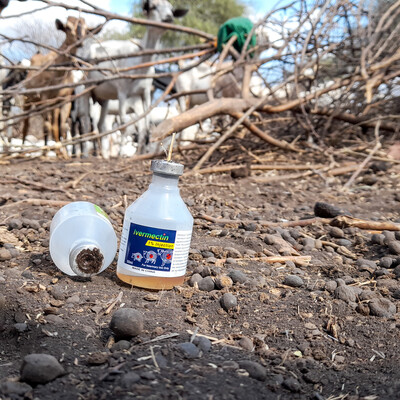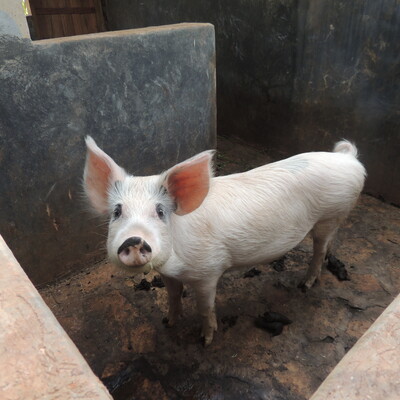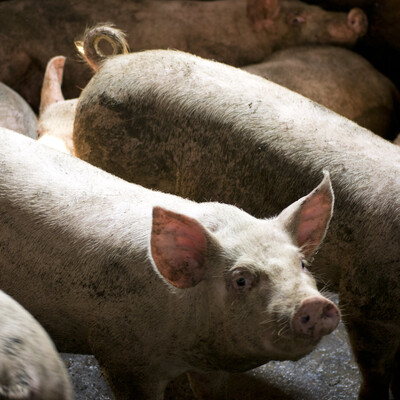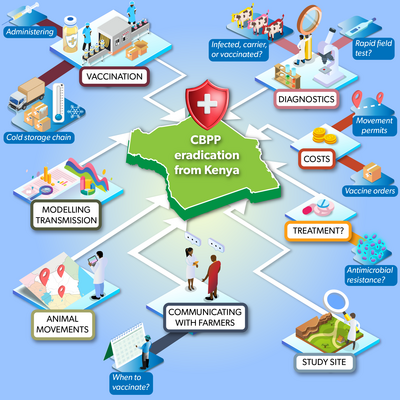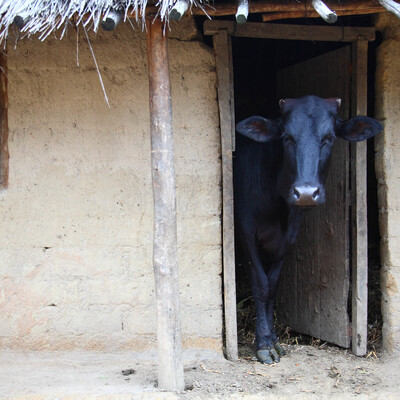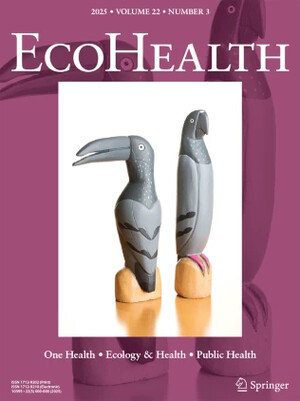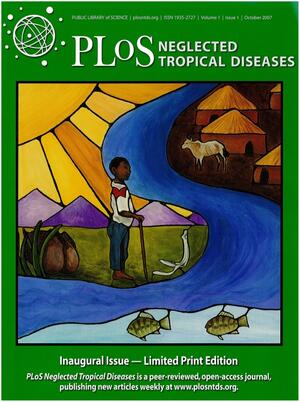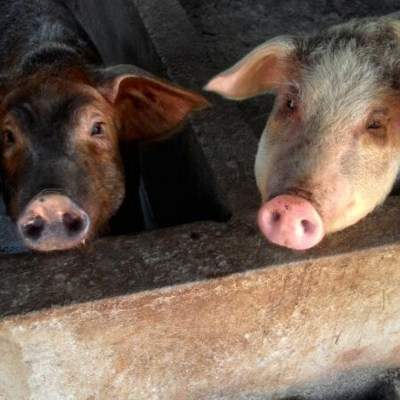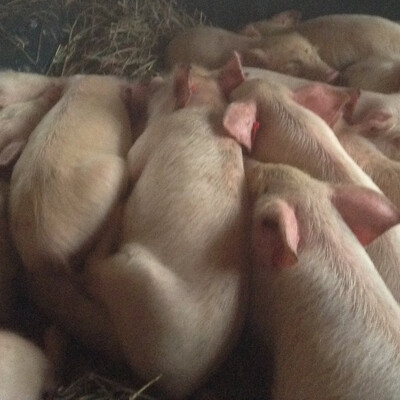
Expanding capacity for participatory disease surveillance in Uganda
In an effort to support animal disease surveillance in Uganda, Vétérinaires Sans Frontières (VSF) Germany, in collaboration with the Ministry of Agriculture, Animal Industry and Fisheries (MAAIF) and the International Livestock Research Institute (ILRI), facilitated a five-day participatory disease surveillance training of 48 animal health experts in Uganda on 9-13 March 2020.
The training was an initiative of the Boosting Uganda’s Investment in Livestock Development (BUILD) project which is working to improve animal health and the health of people who work directly with animals including farmers, animal product processors and consumers of animal-sourced foods.
The training supported the existing conventional disease surveillance systems in Uganda (whereby farmers report clinical disease to local veterinary officers who then follow up) by reviewing participatory epidemiological methods with an emphasis on participatory epidemiology and disease surveillance.
It equipped participants with skills, tools and techniques for managing peste des petits ruminants (PPR) and Rift Valley fever (RVF), two key livestock diseases in Uganda, particularly in the rural areas.
For example, proportional piling, a semi-quantitative technique that allows farmers to assign a score to a number of different items or categories in an assigned community, was used to better understand disease morbidity and mortality in a given community.
The 48 participants were 36 animal health practitioners from 12 districts in Uganda, three MAAIF staff members, three VSF staff members, four PhD students and one MSc student from Makerere University, and one staff member from the Food and Agriculture Organization of the United Nations.
Anna Rose Ademun, Uganda’s chief veterinary officer and chief guest at the training, emphasized the socio-economic impact of the two diseases on the livelihoods of rural smallholder livestock farmers.
She encouraged participants to work more diligently towards responding to animal diseases and PPR and RVF in particular. She thanked the BUILD project and VSF Germany for facilitating the training and reiterated the government’s commitment to developing the livestock sector.
Joshua Waiswa, project manager with VSF Germany and the lead trainer, said a five-day refresher training would be held for the participants, which will allow refinement of field simulations.
Following the training, participants are expected to develop case studies on the assigned projects and engage in continuous training on disease outbreak investigation in an initiative supported by both VSF Germany and the BUILD project to ensure its sustainability.
Kristina Roesel, senior scientist at ILRI and who leads the BUILD project, said the training was a great start towards increasing participatory animal disease surveillance capacity of local animal health practitioners in the country.
‘They will play a key role in helping to control animal diseases in rural communities where laboratory and other resources are limited. We hope to soon hold the refresher training course and expose the participants to on-the-job training in disease reporting and outbreak investigations under BUILD,' she said.
Roesel added that the capacity development training will be expanded to other parts of the country.
The BUILD project is funded by the German Federal Ministry for Economic Cooperation and Development and led by ILRI.
More information
- About the BUILD project
- Reducing antimicrobial use in Uganda’s poultry value chain
- Eradicating peste des petits ruminants in Uganda
- Minimizing the risks of Rift Valley fever in Uganda
Header photo: Uganda field work in Bugiri using proportional piling to assess disease mobility and mortality in livestock (credit: ILRI)






